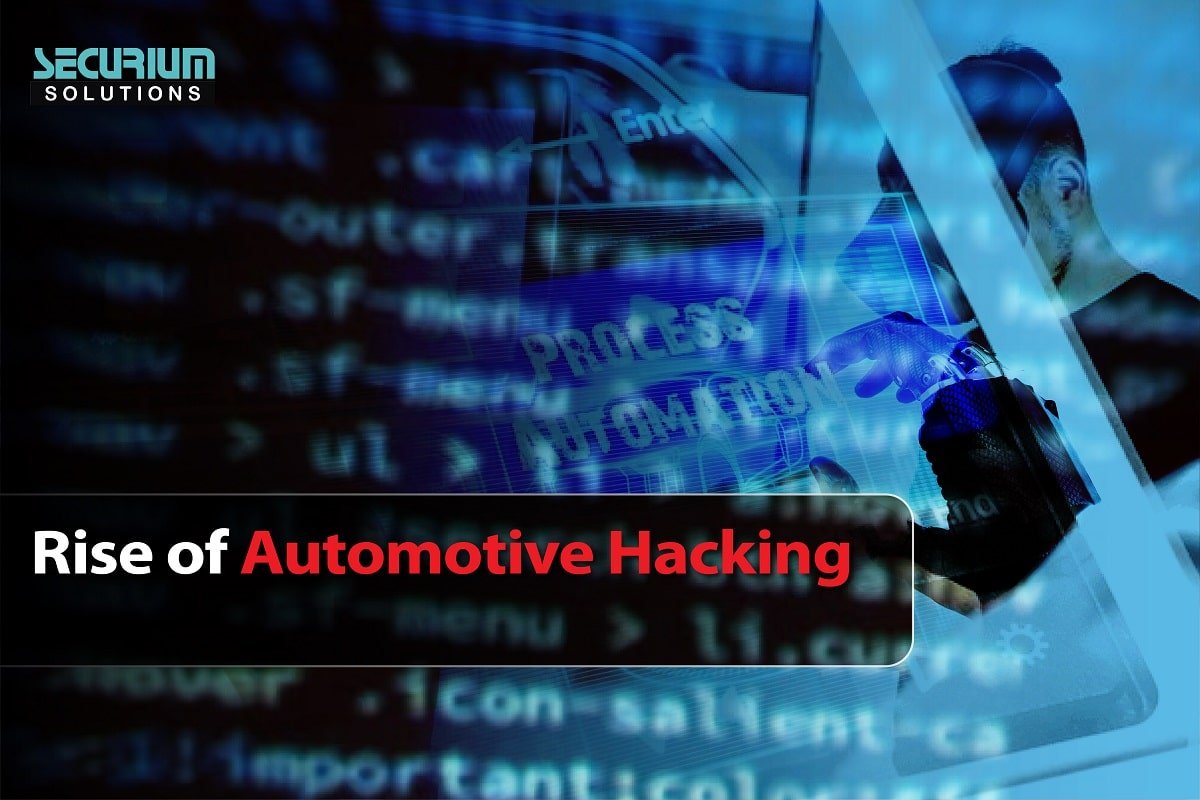Jan 31, 2023 / By securium Solutions
What You Need to Know
The world of technology has been rapidly advancing and with the rise of smart cars, the Rise of Automotive Hacking is no exception. In recent years, the advent of connected vehicles has brought about new challenges, including the threat of automotive hacking. As cars become increasingly sophisticated and integrated with advanced technology, the potential for cyber attacks on vehicles has become a major concern for drivers, manufacturers, and governments alike.
What is Automotive Hacking?
Rise of Automotive Hacking refers to unauthorized access to a vehicle’s computer system, often with the intention of causing harm or stealing personal information. This type of hacking can occur through a variety of means, including exploiting vulnerabilities in a car’s infotainment system, manipulating the electronic control units (ECUs) that control critical systems like the engine and brakes, or exploiting weak spots in the wireless network that connects a car to the internet.
Why is Automotive Hacking a Growing Concern?
As more cars become connected to the internet, the number of potential entry points for hackers has increased. This has led to a growing number of successful hacking attempts, many of which have had serious consequences. For example, in 2015, researchers were able to remotely take control of a Jeep Cherokee, turning off its engine and disabling its brakes. The incident sparked widespread concern and led to a recall of 1.4 million vehicles.
Here are some of the key reasons why automotive hacking has become a growing concern:
1) More Connected Vehicles: As more cars become connected to the internet and incorporate advanced technology, the number of potential entry points for hackers has increased, making it easier for them to gain access to a vehicle’s computer system.
2) Lack of Security Measures: Many car manufacturers have been slow to implement effective security measures, leaving many vehicles vulnerable to hacking. This has led to a growing number of successful hacking attempts, many of which have had serious consequences.
3) Growing Complexity of Vehicles: As vehicles become increasingly sophisticated, they rely on complex systems, such as electronic control units (ECUs), that control critical systems like the engine and brakes. These systems are vulnerable to hacking, which can have devastating consequences.
4) High-Value Targets: Vehicles contain a wealth of valuable information, such as personal data, financial information, and driving habits, that hackers can use for malicious purposes. This has made vehicles a high-value target for hackers, who are motivated by financial gain or a desire to cause harm.
5) The Internet of Things (IoT): The Internet of Things (IoT) has enabled a growing number of devices, including vehicles, to connect to the internet, providing hackers with more opportunities to access and exploit vulnerable systems.
6) Slow Response from Manufacturers: Many car manufacturers have been slow to respond to the threat of automotive hacking, leaving their customers vulnerable to attack. This has led to growing pressure from governments, consumer organizations, and the public for manufacturers to take the threat of automotive hacking more seriously and implement effective security measures.
What Can You Do to Protect Yourself from Automotive Hacking?
The good news is that there are steps you can take to protect yourself from Rise of Automotive Hacking. Here are a few key tips to keep in mind:
1) Keep Your Car’s Software Up-to-Date: Manufacturers regularly release software updates that address known vulnerabilities and improve the security of your vehicle. Keeping your car’s software up-to-date is one of the simplest and most effective ways to protect yourself from automotive hacking.
2) Be Wary of Public Wi-Fi: Avoid connecting to public Wi-Fi networks with your car, as these networks are often unsecured and can provide hackers with an easy way to access your vehicle.
3) Use a Secure Connection: If you must connect your car to the internet, make sure to use a secure, encrypted connection. This will help to protect your vehicle from hackers and prevent them from stealing your personal information.
4) Be Careful with Apps: Only download apps from trusted sources and avoid installing apps that are not specifically designed for use in vehicles.
5) Be Vigilant: If you notice anything unusual about your car, such as strange noises or performance issues, take it to a dealership for a check-up. These could be signs of a hacking attempt and should be addressed promptly.
Conclusion
The rise of automotive hacking is a growing concern for drivers and manufacturers alike. With more connected vehicles on the road, it is important to take steps to protect yourself from these attacks. By following the tips outlined above, you can help to keep your vehicle and personal information safe from hackers. Additionally, as the automotive industry continues to evolve, it is important for manufacturers to prioritize the implementation of effective security measures in order to ensure the safety and security of their customers.




